
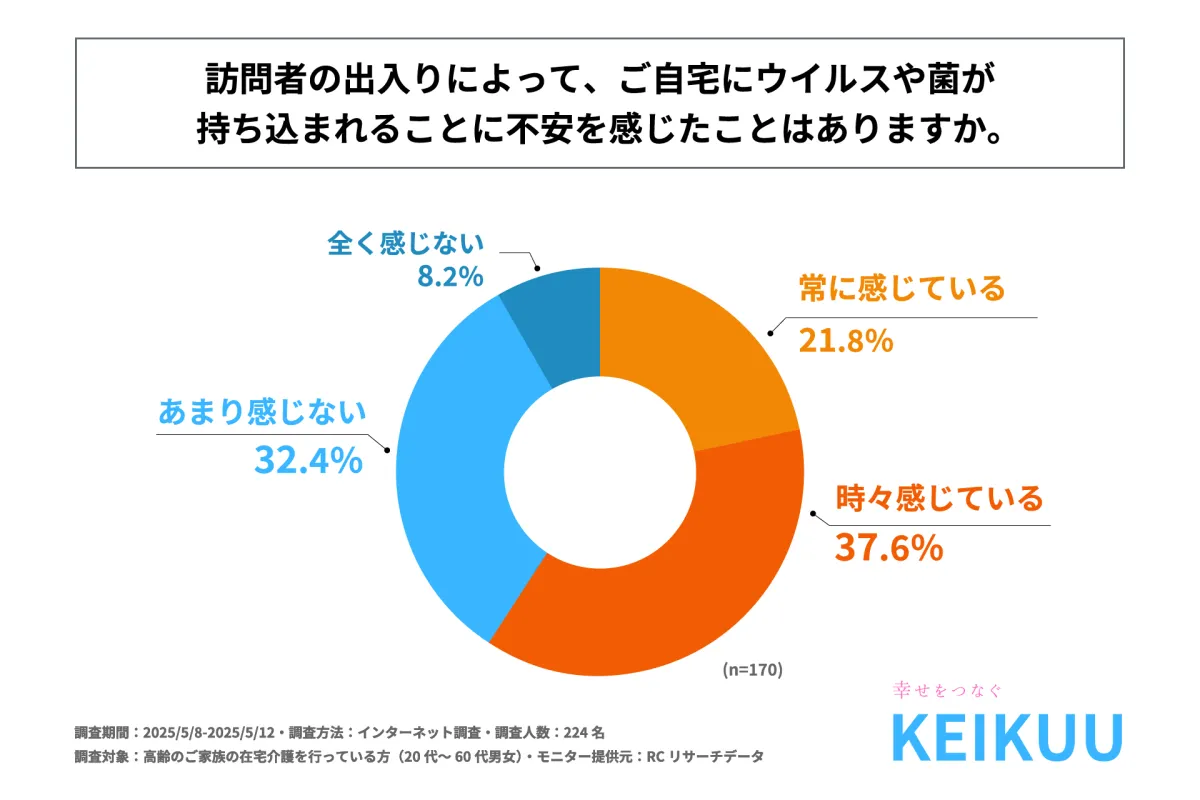
Understanding In-Home Care Infection Control: Survey Reveals Key Concerns
Understanding In-Home Care Infection Control: Survey Reveals Key Concerns
Kyokuu Co., Ltd., based in Chiyoda, Tokyo, launched a recent study aimed at understanding the infection control measures taken by caregivers of elderly family members at home. This survey sheds light on the real concerns and practices of families providing in-home care during a time when societal awareness of infection control is waning, especially as COVID-19 restrictions are lifted.
Background
As restrictions and mandatory mask-wearing protocols have been lifted following changes in the classification of COVID-19, there is a perceived decline in the collective societal awareness regarding infection control. However, families caring for elderly relatives at home continue to harbor fears regarding the potential for viruses and germs to be brought into their homes by visiting family members and care staff. Maintaining hygiene and cleanliness in the living space remains a pressing issue, particularly as older adults experience a heightened risk of severe outcomes from infections. Despite the easing of restrictions, many caregivers persist in implementing infection prevention strategies in their homes. Nevertheless, the specific measures adopted vary greatly across households, highlighting a need for clarity on current practices and levels of awareness.
Survey Overview
Kyokuu Co. commissioned this research to gain insight into infection control measures in at-home caregiving. Key findings include:
- - More than 40% of respondents reported an increased concern for infection control measures following the lifting of mandates.
- - Roughly 75% of caregivers live in environments where others frequently enter and exit their homes.
- - The top three individuals entering homes where caregiving occurs are family members, care managers, and staff from day services.
- - Approximately 60% of respondents expressed concern about the intrusion of viruses or germs through visitors.
- - The leading infection prevention measures taken include frequent handwashing, wearing masks, and ensuring proper ventilation.
- - Looking ahead, caregivers indicated that they would like to maintain these infection control measures as a standard practice.
Key Findings
From May 8 to May 12, 2025, the study surveyed 224 individuals aged between 20 and 60 who provide at-home care for elderly relatives. Some of the most relevant findings include:
1. Infection Control Awareness After Restrictions: Among respondents, 32.6% felt their concerns had not changed, whereas 22.3% noted a slight increase in concern for infection control. Altogether, the combined percentage of those affirming a heightened sensitivity towards infection control exceeded 40%.
2. Co-Inhabitants in Care Environments: An astonishing 75.9% of caregivers reported that others are entering and exiting their caregiving site, underscoring the dynamic and often unpredictable nature of caregiving environments.
3. Top Visitors in Care Settings: Of those who acknowledged home visitors, 58.8% indicated family members, 47.1% noted care managers, and 37.7% identified staff from day services as primary visitors.
4. Concerns Over Virus Transmission: A significant finding was that approximately 60% of individuals have felt anxious about the risk of viruses entering their homes through visitors.
5. Current Infection Control Practices: Caregivers primarily focus on effective handwashing (64.7%), wearing masks (54%), and ensuring proper ventilation (47.8%). These practices highlight a commitment to maintaining health standards.
6. Future Prevention Strategies: Looking forward, caregivers expressed a desire to implement ongoing strategies, with handwashing and mask usage consistently ranked as priorities.
Conclusion
The Kyokuu survey has brought to light the continuing concerns caregivers face even as pandemic-related restrictions ease. With more than 60% of respondents uneasy about invited guests potentially introducing pathogens into their homes, the need for robust infection control measures remains critical. Kyokuu’s product, the Fine Mini air disinfection device, utilizes hypochlorous acid to efficiently eliminate airborne viruses by 99.94% and can disinfect surfaces that standard air purifiers cannot reach. By ensuring a cleaner living space, Fine Mini supports caregivers in creating a safe environment for elderly residents.
For further information about Kyokuu Co., Ltd. and their innovative Fine Mini air disinfection and deodorization device, visit Fine Mini.
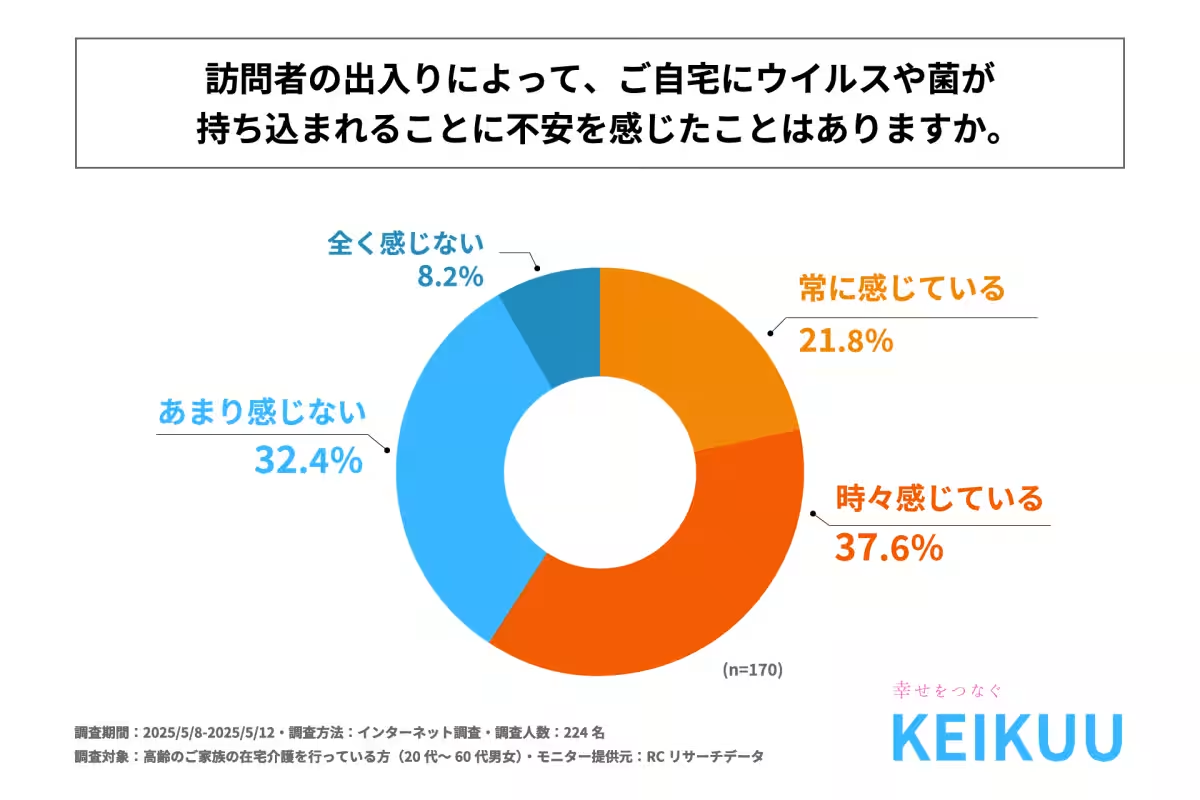
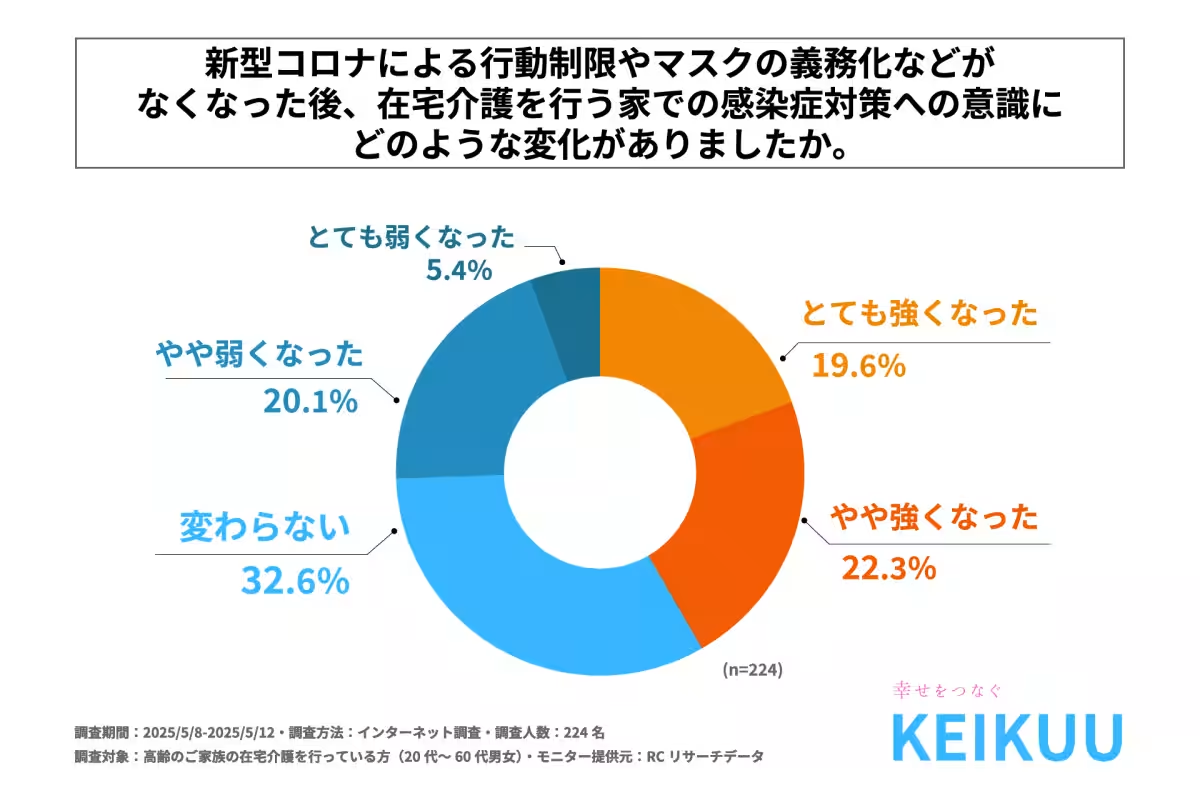
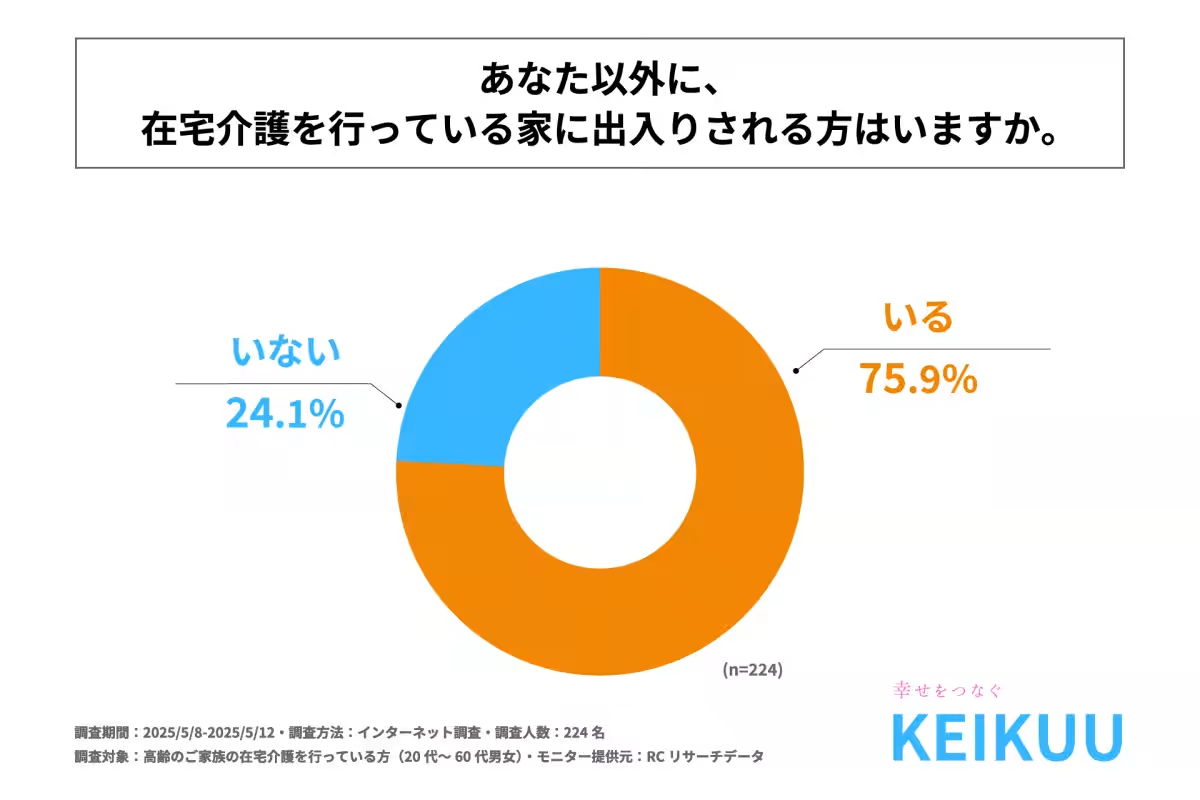
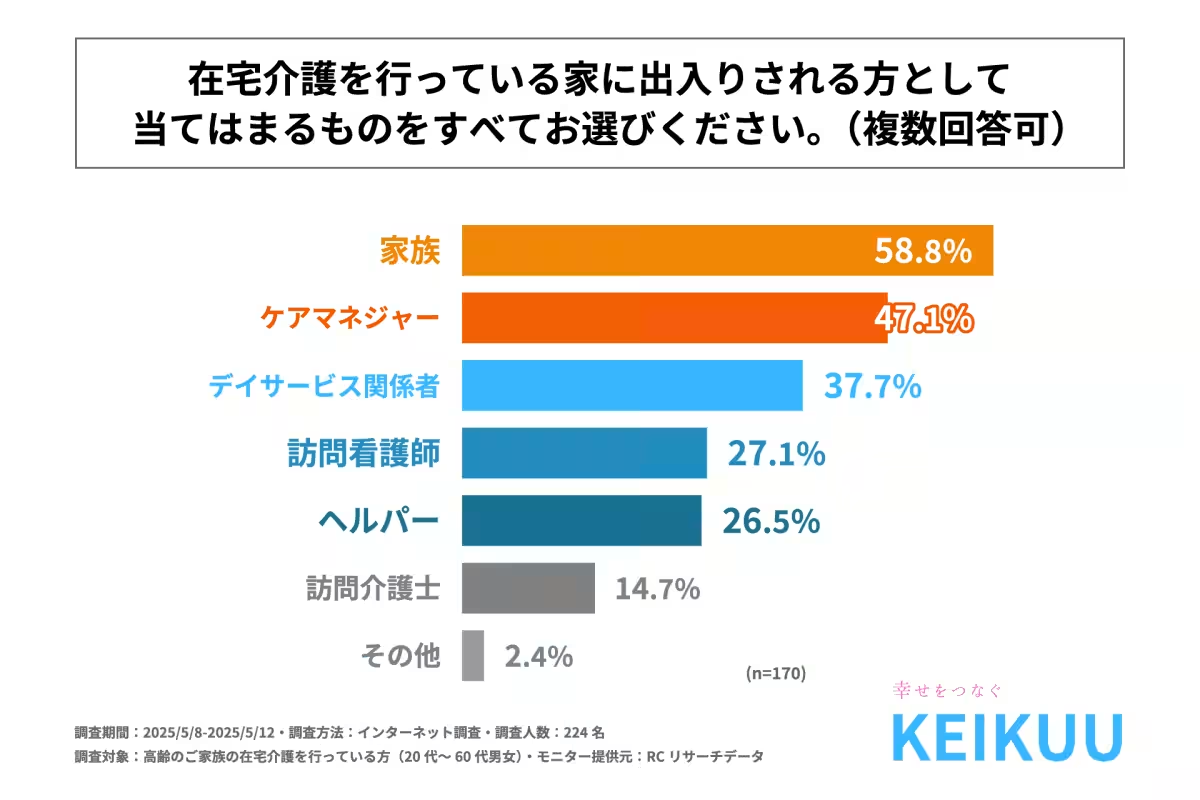
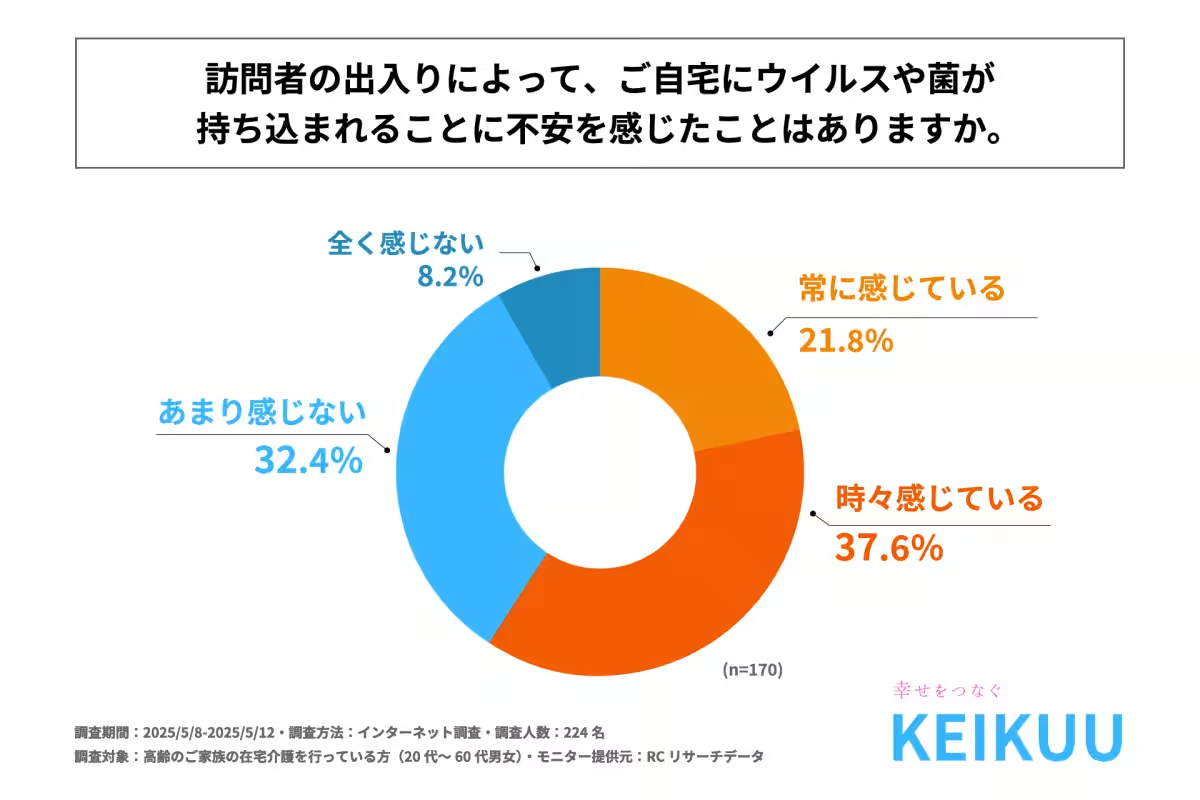
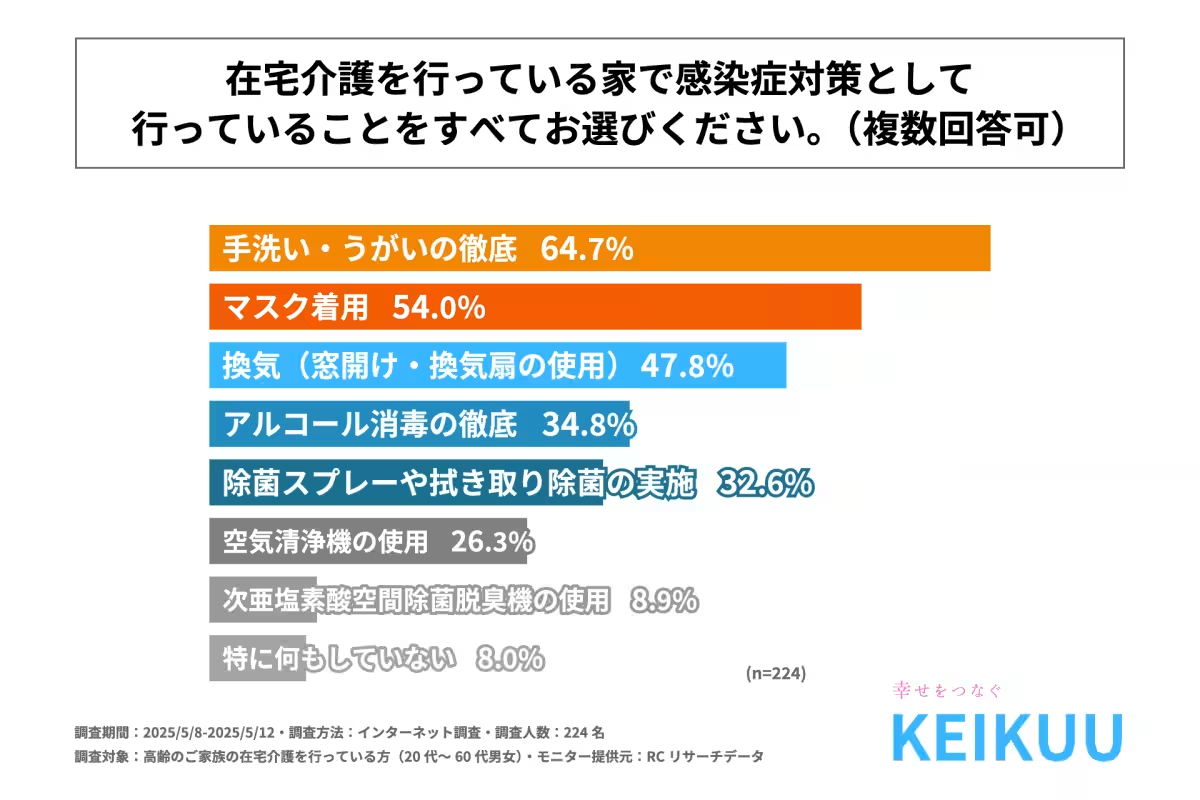
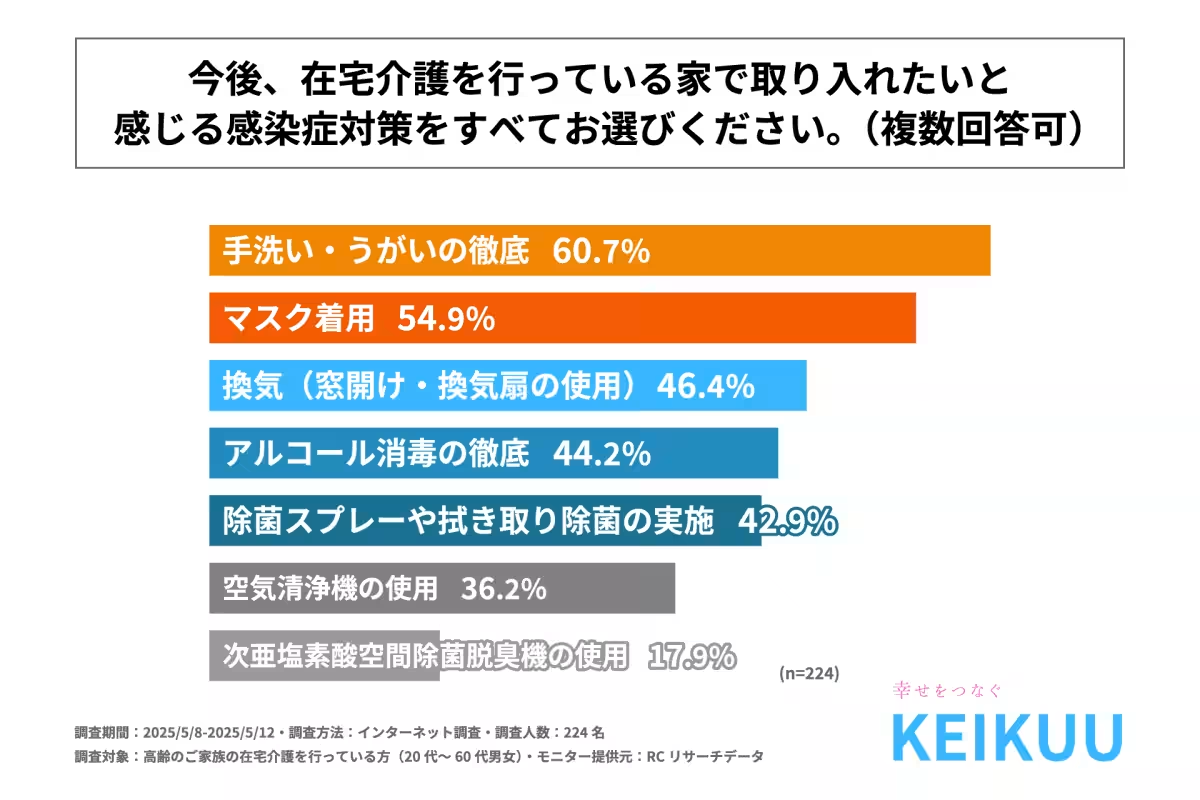


Topics Health)










【About Using Articles】
You can freely use the title and article content by linking to the page where the article is posted.
※ Images cannot be used.
【About Links】
Links are free to use.